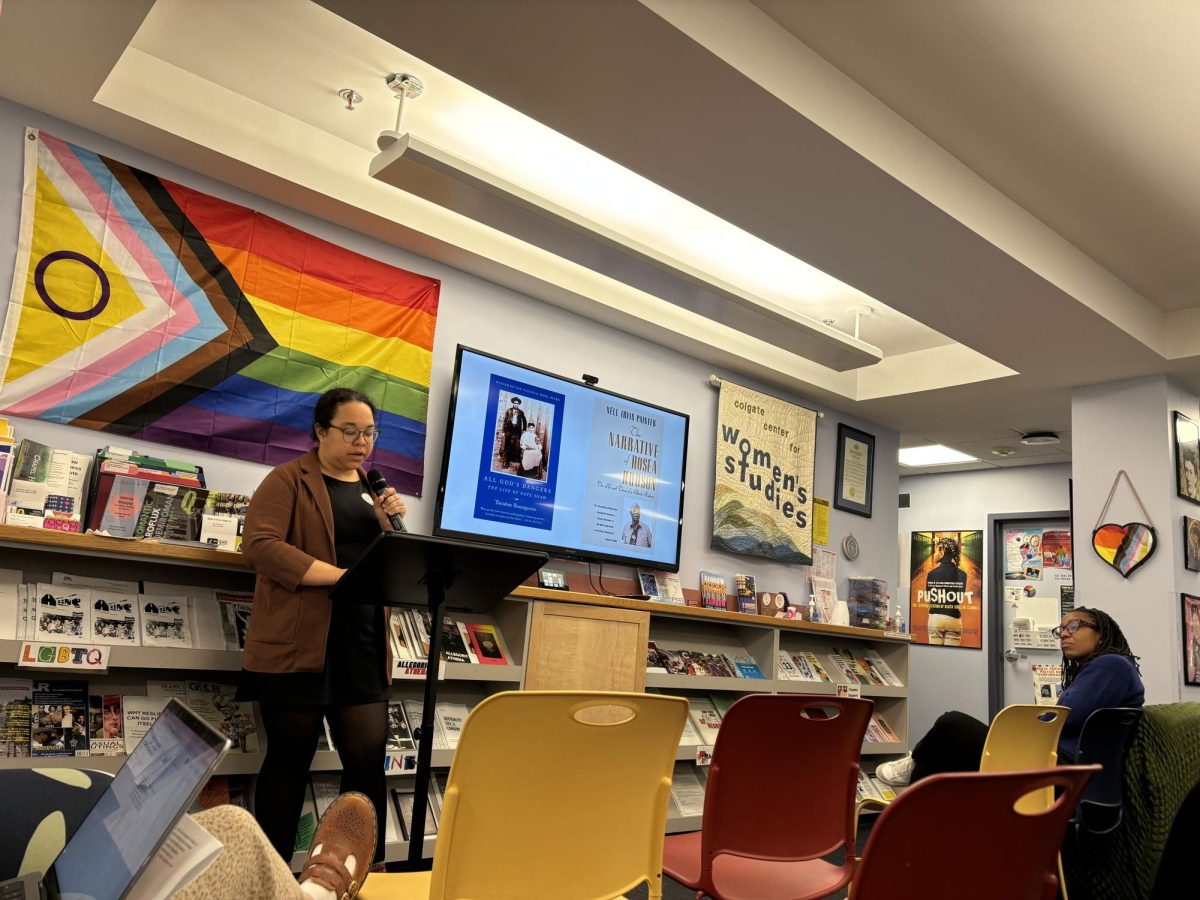The Center for Freedom and Western Civilization hosted “Has American Capitalism Gone Woke?” on Wednesday, Oct. 18, a debate on the merits of environmental, social and governance (ESG) policies by corporations — specifically, investment management companies. Opposing their use and in favor of absolute free-market decisions by investors and firms was Anson Frericks, who co-founded the asset management company Strive with Republican presidential candidate Vivek Ramaswamy. Promoting their restrained use in appropriate contexts and debating their political agenda was Harvard professor and leading expert on responsible business strategies Robert Eccles.
In the debate, the two went back and forth on the policies, which Frericks believed promoted “stakeholder capitalism,” a term coined by economist Klaus Schwab in 2021 describing a capitalist structure that ignores the financial interests of investors in favor of societal issues advanced by governments and other non-business groups. These stakeholders impress upon both companies and the investors that own them. He described the issues ESG stakeholders are concerned about as “woke” ones, such as racial inequality or climate crises. In his professional life as an investment manager, he aims to operate on a purely shareholder-maximizing model. Big investment management firms have the power to force companies into decisions through shareholder votes. Frericks believes that these companies’ ESG policies force businesses to make decisions that are not in their best financial interests, particularly through involvement in political causes.
“A business should focus on the consumer, products and services […]. You’re not going to be able to do that if you repeatedly get involved in issues that upset half of your consumer base,” Frericks said.
Eccles disagreed with Frericks’ contention that ESG policies were inherently liberal.
“The right says asset managers can’t invest in China’s stocks […]; you’re impugning a political objective into the assets you’re owning,” Eccles said.“I just don’t see the political intent in their shareholder proposals that you do, that it’s trying to spread stakeholder capitalism.”
Eccles characterized top players in pro-ESG bills — legislation that enforces these policies for companies and their investors — as coming from both sides of the political aisle. He described government intervention, specifically intervention through the Securities and Exchange Commission (SEC), in the practices and decisions of businesses as a non-partisan aspect of American markets. Eccles noted that sometimes intervention involves sustainability and other non-profit-related goals.
“When you say sustainability to a Republican, they think Europe, Marxism. They don’t like it,” Eccles said.
Frericks’ examples consisted of stakeholder proposals for liberal causes, including a forced “racial equity audit” of Apple and “green smuggling” funds that excluded stocks with environmentally damaging practices. Frericks claimed that he was only opposed to these motions because they were political — not because they were liberal.
Previously, Frericks served as the president of sales for Anheuser-Busch. The company lost nearly $40 billion in value when its brand Bud Light released a controversial advertisement featuring transgender influencer Dylan Mulvaney. While not the fault of ESG policies, this episode represented to him how easy it was to alienate consumers and lose shareholder value by getting involved in political issues. He further criticized the company for its imbalanced focus on diversity, equity and inclusion (DEI) immediately following the ad.
“Outside pressure on these initiatives changed the focus away from important business focuses,” Frericks said.
Eccles conceded that it was largely not in the interest of companies for brands or CEOs to make political statements that could lose them consumers but added that ESG and DEI were not synonymous or correlated.
“ESG is not about trying to go from 90 to 95 on your DEI score,” Eccles said.
Regarding investment banks that manage others’ money, Frericks was not against individuals choosing to invest or divest based on their morals or values. However, he claimed that people are finding their money in ESG funds without disclosure.
“People think they’re just having their money maximized,” Frericks said. “In reality, [their managers] are distracted.”
The debate was organized by Professor of Political Science and Director of the Center for Freedom & Western Civilization Robert Kraynak, who explained why he felt this topic merited a discussion.
“The question of ESG in corporate America is one that nearly all Colgate students will face in their future careers. It’s everywhere,” Kraynak said. “People are trying to weigh this question of the value of profit maximization in relation to their social conscience.”
The Center for Freedom & Western Civilization will continue to host talks and debates throughout the year about present-day political and societal issues.











